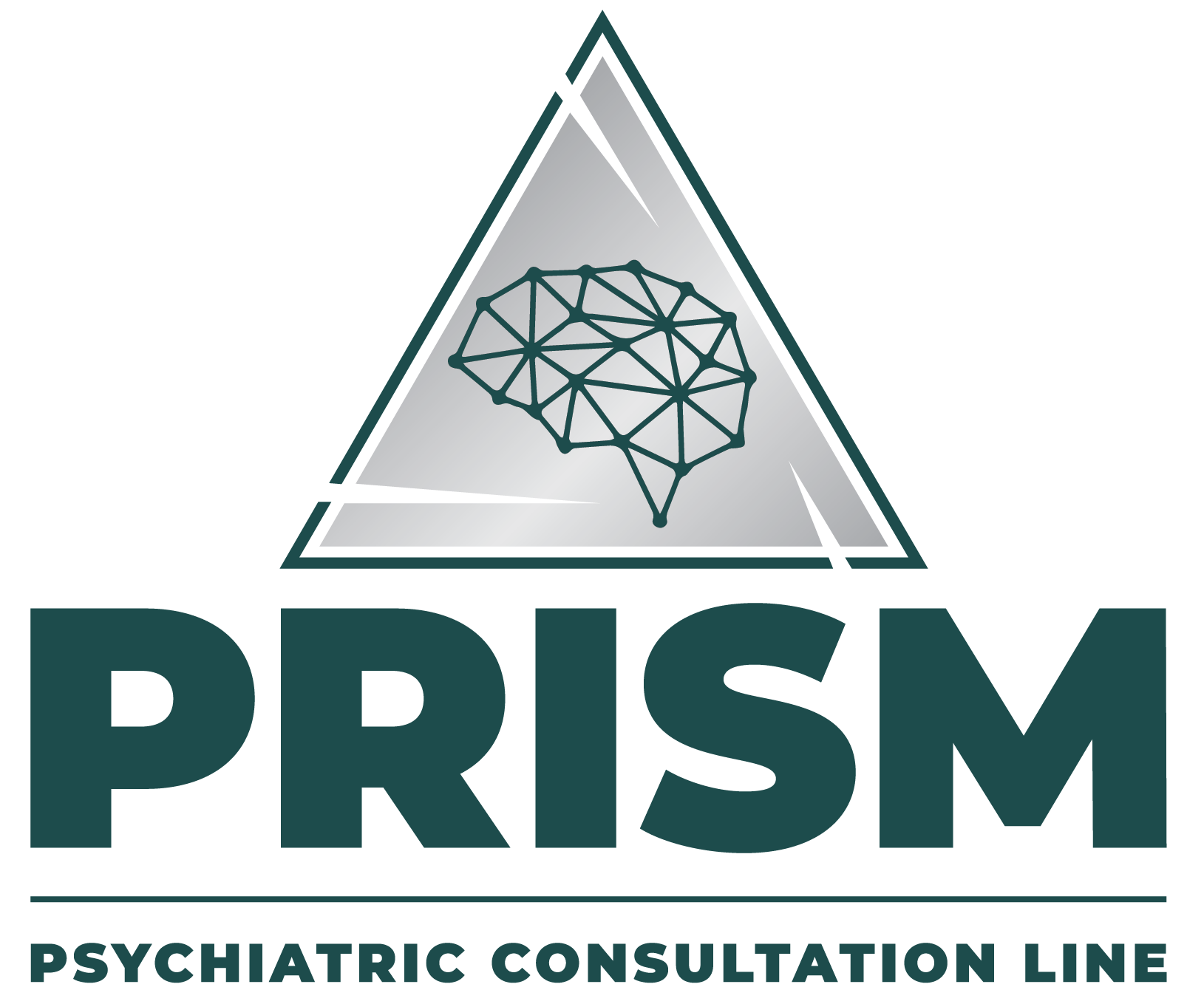
PRISM for Moms is expanding care for perinatal people experiencing depression and other behavioral health disorders by increasing providers’ capacity to screen, assess, treat, and refer those experiencing maternal depression, anxiety, substance use, and related behavioral health disorders in rural and medically underserved areas of Montana.
PRISM for Moms FAQs
What is PRISM for Moms?
PRISM for Moms is a subspecialty psychiatric consultation service for Montana-based clinicians caring for patients in the perinatal period. Clinicians are welcome to use this service to discuss psychiatric diagnosis and treatment options for patients who are pregnant or who are in the postpartum period.
How do I connect with PRISM for Moms?
Call 1-833-83-PRISM (1-833-837-7476) or submit an e-consult using our HIPAA-compliant online form. When you submit your request, please leave a call-back number or a fax number to allow us to share our recommendations with you securely.
Who can access PRISM for Moms?
Any Montana clinician who is caring for the mental health of pregnant people or people in the postpartum period is welcome to utilize the PRISM for Moms consultation line. This may include but is not limited to midwives, obstetric providers, primary care providers, pediatricians, psychiatric providers, psychologists, nurses, medical assistants, care coordinators, and social workers.
Can PRISM for Moms staff provide direct psychiatric treatment or prescribe medications for my patient?
No, PRISM for Moms staff cannot provide direct treatment. However, we can provide you with support for managing your patient’s mental health and substance use disorders and will assist with treatment referrals when necessary. We may offer a free, one-time patient evaluation on a case-by-case basis.
I’m a pediatric provider—how can PRISM for Moms help me?
PRISM for Moms recognizes that pediatric providers regularly encounter individuals in the perinatal period who may be experiencing mood, anxiety, or substance use disorders. When this happens, we encourage you to contact us (with the consent of your patient’s caregiver) to allow us to help your patient’s caregiver access the resources they need or to help connect your patient with a primary care or prenatal provider.
Can PRISM for Moms provide materials for my practice?
Yes, we have flyers, brochures, magnets, and pens available for distribution. Please email Dr. Ariela Frieder, Medical Director for PRISM for Moms, at ariela@frontier.care and ask for these resources.
What is the goal of PRISM for Moms?
Our goal is to support healthcare professionals in Montana who are doing their best providing mental health care to their patients during pregnancy and during the postpartum period. We do this by facilitating the early identification of perinatal risks and mental health symptoms, implementing first-line management of mental health and substance use disorders, and making meaningful referrals to additional community resources.
How was PRISM for Moms created?
PRISM for Moms is supported by a 5-year grant from the Health Resources and Services Administration (HRSA), Maternal and Child Health Bureau (MCHB), to enhance systems for screening, assessment, and treatment of depression, substance use, and other behavioral health disorders in pregnant and postpartum patients. This partnership opportunity includes Montana DPHHS Health Resources Division, Frontier Psychiatry, and Healthy Mothers, Healthy Babies.
Is PRISM for Moms just for moms?
The program name PRISM for Moms was chosen to highlight the disparities that women have faced historically in healthcare, especially when accessing mental health services. Women are more likely to wait longer for a health diagnosis and to be told it’s “all in their heads,” illustrated in a 2018 BBC article [bbc.com] on gender bias in healthcare.
However, these mental health needs are not unique to birthing mothers so treatment is available for all types of mother-figures in a child’s life, which could include kinship caregivers, foster/adoptive parents, and parents of different gender identities. It is for this reason that our team chooses to use inclusive language on our website, such as referring to patients as perinatal or postpartum people, thereby including people of all genders and identities that may be struggling with their mental health during the perinatal period (perinatal includes pregnancy, labor, and up to three years after childbirth).
Did you know?
PERINATAL MENTAL HEALTH STATISTICS
![]() Maternal mental health (MMH) conditions are the most common complications of pregnancy and childbirth, affecting 1 in 5 women (800,000 women each year in the United States). [1-3]
Maternal mental health (MMH) conditions are the most common complications of pregnancy and childbirth, affecting 1 in 5 women (800,000 women each year in the United States). [1-3]
![]() 75% of women who experience MMH symptoms go untreated. [4]
75% of women who experience MMH symptoms go untreated. [4]
![]() MMH conditions include depression, anxiety disorders, obsessive-compulsive disorder, post-traumatic stress disorder, bipolar illness (which may include psychotic symptoms), and substance use disorders. [1-3]
MMH conditions include depression, anxiety disorders, obsessive-compulsive disorder, post-traumatic stress disorder, bipolar illness (which may include psychotic symptoms), and substance use disorders. [1-3]
![]() Women will see a frontline healthcare provider (obstetric, pediatric, or primary care provider) 20-25 times during a routine pregnancy and first year of baby’s life, providing ample opportunity for these providers to discuss and screen for MMH conditions. [5]
Women will see a frontline healthcare provider (obstetric, pediatric, or primary care provider) 20-25 times during a routine pregnancy and first year of baby’s life, providing ample opportunity for these providers to discuss and screen for MMH conditions. [5]
CITATIONS
[1] ACOG Committee Opinion 757 (2018).
[2] Gavin (2005). Obstetrics & Gynecology, 106, 1071-83.
[3] Fawcett (2019). Journal of Clinical Psychiatry (80)
[4] Byatt (2015). Obstetrics & Gynecology, 126(5): 1048-1058.
[5] Maternal Mental Health Leadership Alliance. (2020). FACT SHEET Perinatal Psychiatry Access Programs, 1.
Consult Line:
1-833-83-PRISM
1-833-837-7476
Submit e-Consult Form
This website is supported by the Health Resources and Services Administration (HRSA) of the U.S. Department of Health and Human Services (HHS) as part of an award totaling $650,000 annually with 0% financed with non-governmental sources. The contents are those of the author(s) and do not necessarily represent the official views of, nor an endorsement, by HRSA, HHS, or the U.S. Government. For more information, please visit HRSA.gov.



